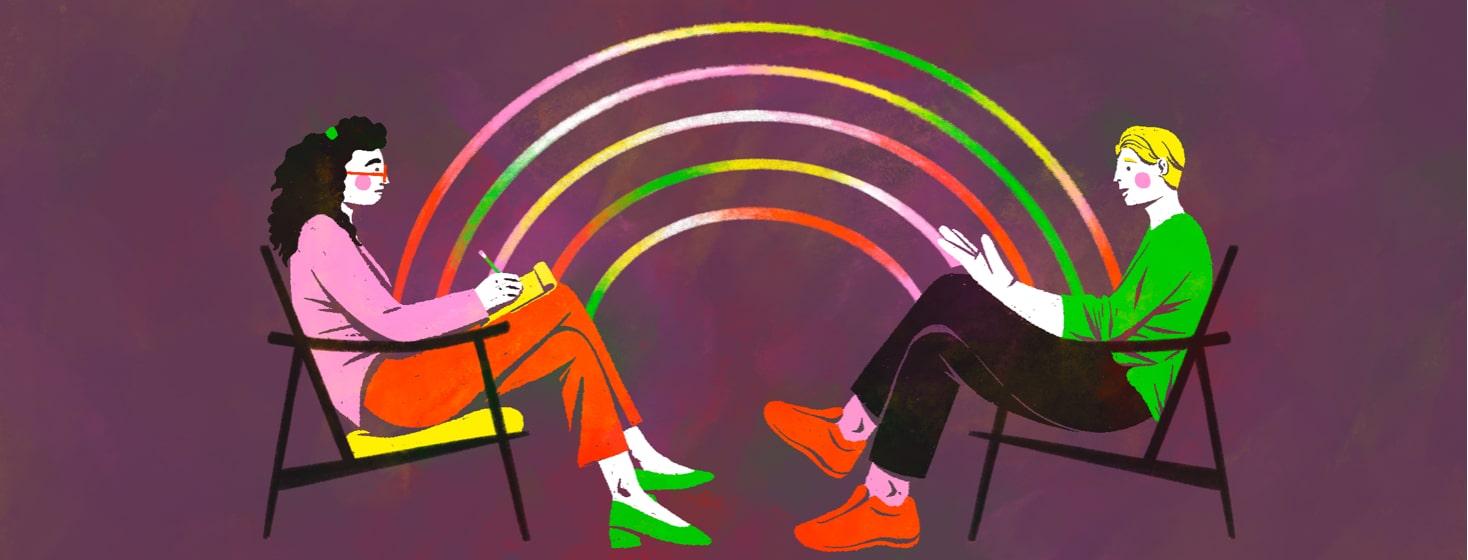Five Ways Your Therapist Can Meet You Where You Are
If you're someone living with depression and working on finding the right therapist for you, here are some things to look for. These are some telltale signs that your therapist is meeting you where you are, and invested in developing a successful therapist-client relationship.
What to look for in a therapist
Here are 5 things to look for in a therapist:
1) They ask you what your goals are.
If you go into therapy with the goal of managing your social anxiety but the therapist thinks you need to work through childhood trauma, the therapy will not move forward and the therapeutic alliance may be damaged.
Yes, a deeper connection and trust will hopefully develop, and you may be more willing to open up. However, at the beginning of the therapy, the therapist should focus on what you initially sought therapy for.
2) They work with you on making therapy a safe space.
A therapist shouldn't assume that their office represents a safe space for you, especially at the beginning of your work together. Someone's therapist may not know, for example, that the color of the chair in the therapy office is the same color of the couch her uncle sexually abused her on.
Let your therapist know if something about the space is making you uncomfortable. Your therapist should listen to your concerns and do their best to create a safe space together.
Quick Quiz
Cognitive Behavioral Therapy (CBT) focuses on finding and changing:
3) They focus on what’s on your mind – not theirs.
I can't tell you how many times I've ended a session with a client, and we agreed that we would pick up where we left off, or that we would work on an issue that they brought up at the end of the session. I'd prepare to discuss what we had spoken about, and the client would come into the session and want to talk about something completely different. They wanted to speak about something that happened to them that week that was upsetting them or had caused them to act out in a self-destructive manner.
And you know what? That's OK! As a therapist, we have to be ready to pivot. The client's voice is the most important voice when it comes to therapy.
4) They’ll mix up their approach.
If one type of therapy isn’t working for you, a flexible therapist will try to incorporate different methods into your sessions. For example, if you’re having difficulty articulating your feelings about a parent, they may ask you to write a letter you will never mail. Or perhaps during another session, they’ll ask you to identify what pleasurable activities you will engage in over the next week. A good therapist has a variety of tools in their toolbox.
5) They tell you if they're not a good fit.
Different therapists have different scopes of practice. And if a provider is not qualified to treat a client with a specific diagnosis, they need to be transparent from the start. For example, you may be diagnosed with a personality disorder in addition to your depression.
If a therapist isn't qualified to work with clients with that diagnosis, they should transfer you to someone who has more experience and who can treat you with the expertise you deserve.
Empowering you in your depression treatment
These are only 5 of the many ways therapists can meet you where you are. An overall goal of therapy is to feel empowered and to feel like therapy is a collaborative approach.
